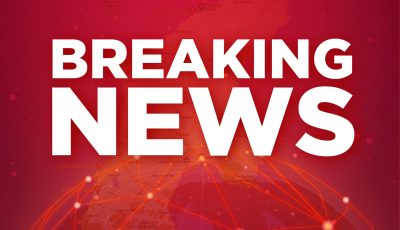$120 million for Medicaid, 3,000 more workers OK’d
WASHINGTON, D.C.— The U.S. House of Representatives approved yesterday two massive spending bills for fiscal year 2020 that included $120 million for Marianas Medicaid over the next two years, making 3,000 more foreign worker permits available for disaster recovery over the next three years, and increasing this year’s funding for education, transportation, and energy development among other benefits for the Marianas.
Delegate Gregorio Kilili C. Sablan (Ind-MP) spent his time on the floor thanking key members of the House who had helped him get Marianas-specific language into the fiscal year 2020 appropriations bills.
Critical for the Marianas is the $120 million for Medicaid, which averts a funding “cliff” caused by the end of special Obamacare grants to insular areas this year. All of the insular areas received the two-year funding, but the Marianas received the largest percentage increase. Marianas Medicaid for fiscal year 2020 was previously set at just $6.93 million for the year.
The four smaller insular areas also get an improved federal/local matching rate in yesterday’s bill. The federal share of Medicaid, which is now 55%, jumps to 83%, higher than for any of the U.S. states. Puerto Rico’s federal share was set at 76% in the spending bill.
The increased Medicaid money does not come without strings. All the insular areas will have to report annually to Congress on how they have spent their new funds and what new benefits have been added for those Medicaid insures. Each of the Pacific insular governments will also have to demonstrate progress toward creating a Medicaid Fraud Control Unit and implementing the statistical information systems that states, Puerto Rico, and the U.S. Virgin Islands already use.
More workers to speed recovery
Sablan was also able to include in the fiscal year 2020 appropriation his Disaster Recovery Workforce Act, allowing an additional 3,000 foreign workers in the Marianas for reconstruction from last year’s typhoons and to prepare for future storms.
The Natural Resources Committee passed H.R. 4479 by unanimous consent on Dec. 5 and that strong show of bipartisan support helped Sablan make the case for including his bill in yesterday’s appropriation. The alternative, “regular order,” would have required getting time on the House floor for a vote on his bill and then sending it to the Senate. “Even under the best scenario regular order would have meant waiting for enactment until next year,” Sablan said. “The recovery effort needs workers now.”
Sablan said that if his Disaster Recovery Workforce Act does pass the Senate and is signed into law, as expected this week, he will immediately ask the U.S. departments of Labor and Homeland Security to quickly put in place the application process for the new workers.
Education funding gets a boost
Education funding got a boost nationwide and for the Marianas. Elementary and Secondary Education Act Title I-A funding increased 3% year-over-year. This should put the annual grant for the Marianas over $12 million.
Title I is the largest grant that the Public School System receives from the U.S. Department of Education. In the 2015 reauthorization of the Elementary and Secondary Education Act, Sablan adjusted the allocation formula, increasing annual funding for PSS by 62%. That change continues to pay dividends.
Also up is funding for the Marianas Head Start program, which should exceed $4 million in fiscal year 2020. Funding for education of individuals with disabilities increases 3.2% to an estimated $5.1 million for the Marianas.
The Child Care and Development Block Grant increased 10.4%, which should bring the Marianas funding to over $5 million. This is more than double what the program was receiving just three years ago.
Energy Action Plans law funded, must be followed
Insular area delegates also won more funding for lowering the costs of electricity and moving to sustainable production sources. Sablan led an effort earlier in the year for the money, which will now go up from $5 million to $6.25 million.
Congress intended the grants to the Marianas, Guam, American Samoa, and the U.S. Virgin Islands to be used to develop energy master plans for each area with detailed engineering and financing steps to lower costs and a timeline for implementation. But the plans have never been put together as required by U.S. Public Law 113-235.
The fiscal 2020 appropriation, however, will now require the funds to be used strictly in accordance with the law. (PR)



























